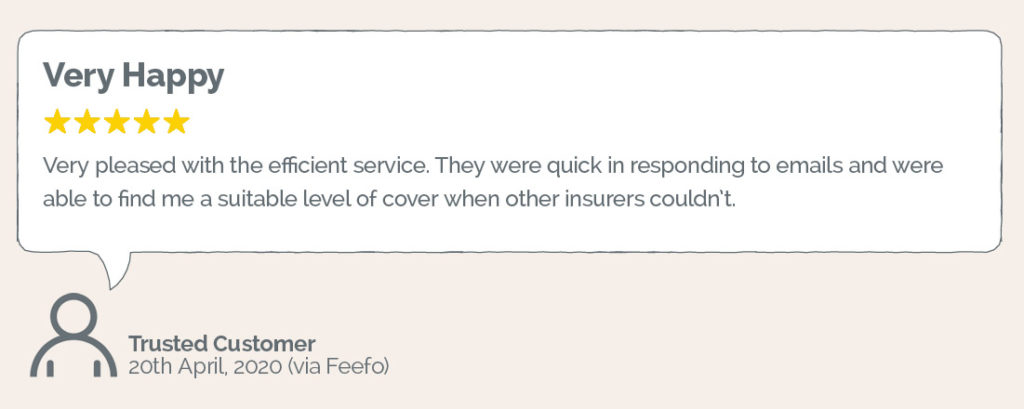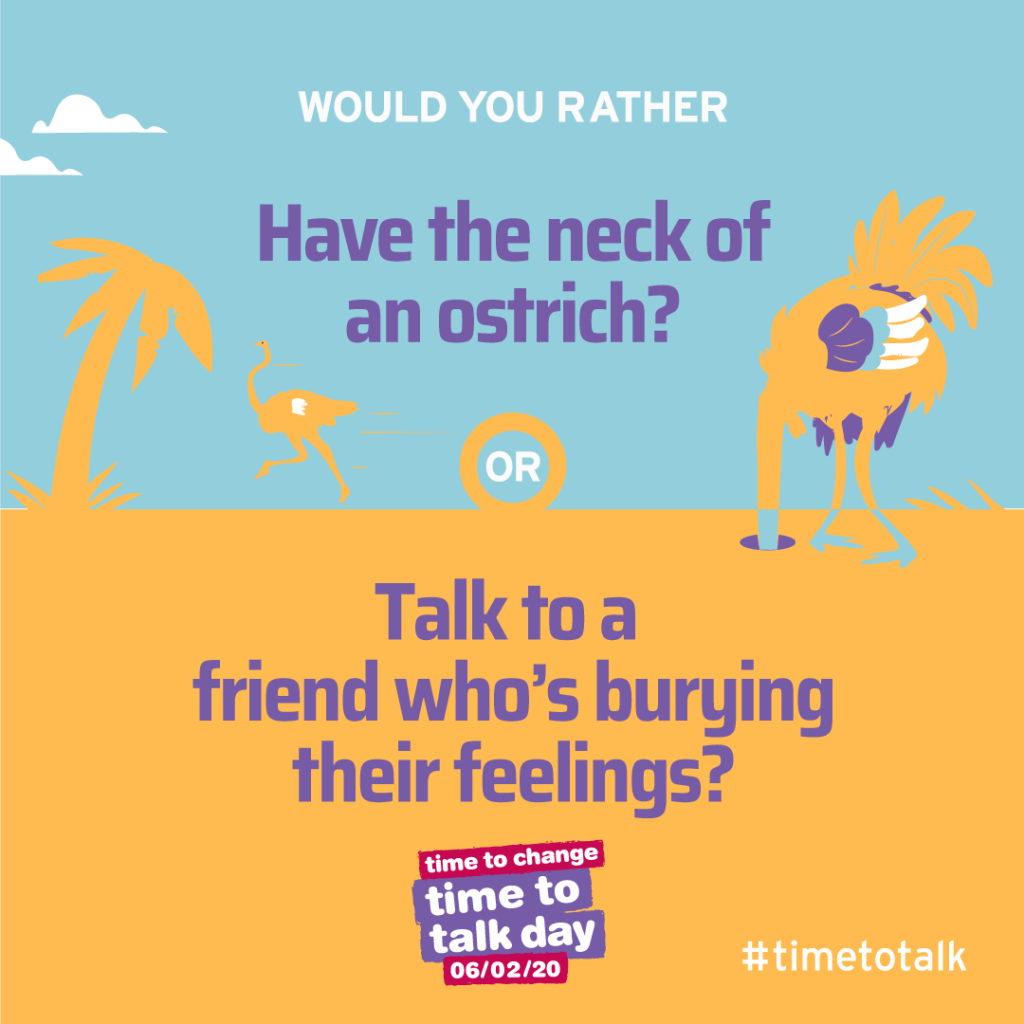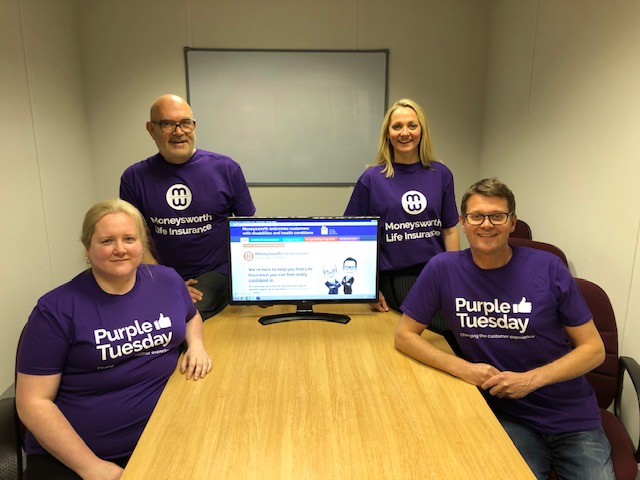Moneysworth wins Best Small Protection Advice Firm 2023!
Learn more
Call us 01625 462 744

Mental Health & Money Advice is the first UK-wide online advice service specifically designed to combine support for both mental health and financial problems. The organisation’s website provides guidance for people living with mental health conditions who are struggling with their finances, as well as anyone whose money problems are affecting their mental health.
The service and its website have been set up by the Mental Health UK, a UK-wide charity which represents four member charities: Rethink Mental Illness in England, Hafal in Wales, Support in Mind in Scotland and MindWise in Northern Ireland.
Fundraising for the website’s development has been provided by the charity’s partner, Lloyd’s Banking Group.
Moneysworth is one of four specialist Life Insurance brokers selected by Mental Health UK to be listed on the website’s Insurance and Mental Health guidance page: Specialist insurance providers for people with pre-existing mental health conditions.
A further four million are at risk of developing mental health difficulties due to financial problems. *
These statistics underline the need for the insurance industry and other financial services to operate in ways which consider the needs of customers with mental health conditions.
As mentioned in our previous article, we know from conversations with clients how it can be uncomfortable and upsetting for people to talk about their mental health. So it’s encouraging for us to see that, across the insurance industry, organisations and providers are making important changes to improve access to insurance for people who struggle to find cover.
The Mental Health & Money Advice service is endorsed by the ABI (Association of British Insurers) in conjunction with its Mental Health & Insurance Standards guidance for members.
The ABI and its members have been engaging with mental health charities in order to better understand the needs of people with a history of mental ill health. This has resulted in a comprehensive system of standards which aim to improve:
The ABI standards complement those set out in the Signposting Agreement for Insurers and Brokers.
The signposting agreement helps to improve access to insurance in situations where an insurer is unable to offer cover to a client, or if the client cannot afford the cover that is offered.
Signposting ensures consumers are offered guidance to find specialist assistance from an adviser or organisation who can help them continue their search for cover.
This is a voluntary agreement, which Moneysworth helped to develop as a member of the Access to Insurance Working Group, in conjunction with BIBA (British Insurance Brokers’ Association), the DWP, other brokers and industry organisations.
Since Moneysworth started in 2003, our award-winning team has helped many people with mental health conditions to find suitable Life Insurance.
Andrew Wilkinson and Tim Boddy, Moneysworth’s founding partners, have personal experience of some of the key issues involved. It’s one of the reasons that we’re so dedicated to helping each and every client find the most suitable result.
* Source: statistics from Mental Health & Money Advice

For people looking at arranging cover now, and for those who have existing cover, a key concern is will the insurer pay out if a claim is made relating to Coronavirus?
The UK protection insurance industry (Life Insurance, Critical Illness and Income Protection) has a very positive record on life insurance claims. According to the Association of British Insurers (ABI), in 2019, 98% of all protection insurance claims were paid out.
We will have to wait until 2021 to get the overall UK insurance payout statistics for this year, but the insurer LV= has recently announced that they have so far paid out around £2.5 million in claims relating to Covid-19.
The key point to remember is that for Life Insurance, Critical Illness and Income Protection policies, Coronavirus has not changed the way in which claims are assessed.
Short answer: Most likely, yes.
People who develop very serious Coronavirus symptoms will likely have to go into intensive care and be put onto ventilators. Some will recover but, sadly, some will die. For Life Cover policyholders who die as a result of the Coronavirus, a life insurance claim should not be affected, meaning that their loved ones will receive a payout from the insurer.
Short answer: Probably, but it would need to be after the end of the deferment period – and, due to the nationwide lockdown rules, deferment periods are now generally longer for new policyholders.
Income Protection is designed to pay the policyholder part of their income if they’re unable to work due to illness or accident. If someone is not able to work due to ‘shielding’ or ‘self-isolation’ then that would not be covered by Income Protection insurance.
For people with existing Income Protection policies which have been taken out prior to the Covid-19 outbreak, the terms and conditions remain unchanged. Insurers will pay Coronavirus-related claims on existing policies once the policyholder has reached the end of the deferred period if they still unable to return to work due to their illness.
For new Income Protection applications, some insurers have increased the minimum period before a claim can be made after the policy starts (this is known as a deferred period). The aim of this increase is to ensure that any period of self-isolation would have come to an end before a claim can be made. If the policyholder is ill with Coronavirus at the end of a deferred period and beyond, they would be eligible to submit a claim.
Short answer: In most cases no, but in a few cases possibly yes.
Most critical illness claims are unaffected by the current crisis because most policies pay out on the diagnosis of one of the qualifying named critical illnesses on the policy. The majority of existing policies will have been taken out before the virus was known about, and new policies do not include cover for Coronavirus.
The most likely situation where a Critical Illness claim relating to Coronavirus may be paid would be if the policyholder needed to be put onto a ventilator. Insurance companies’ policies differ in the terms about the amount of time and degree of loss of respiratory function to be eligible to make a claim.
Short answer: Generally, not at the moment.
So far, we’ve not seen a general increase in the cost of standard premiums, but this might change in the future if insurers feel it’s necessary to do so.
However, if you already have a policy in place, your monthly premiums are likely to be fixed or guaranteed (unless you have reviewable premiums, low start options or index linked cover).
Now might be a good time to explore your Life Insurance options to protect your family and home in the event of death and/or critical illness and to insure your income.

Due to the risks of Coronavirus, many insurers have made changes to their underwriting rules. These changes mean that some people may experience a greater degree of difficulty in finding cover at an acceptable price.
For example, some insurers have reduced the maximum BMI (Body Mass Index) they are prepared to accept. Also, some insurers are rejecting a higher number of cover applications involving heart conditions than they were previously.
This is because Moneysworth’s core business has always been to help people with health conditions to obtain Life Insurance, Critical Illness Cover and Income Protection Insurance.
In April alone, the Moneysworth team has been able to arrange cover for many clients who have a wide range of existing health conditions, such as:
This list shows that, despite the recent underwriting changes made by insurers, it’s still possible for people with health conditions to find the cover they need.
To maximise the chances of finding cover at an acceptable price, it’s best to use a specialist broker, such as Moneysworth, which has proven expertise in finding insurance for people with existing health conditions.


For over ten years, mental health campaign Time to Change has been working to improve attitudes and behaviour towards people with mental health problems.
The movement was started by the charities Mind and Rethink Mental Illness, and their work has resulted in 12.7% of the population (5.4m people) now having more positive attitudes to mental health.
Of course there is still some way to go. The prejudices people face can mean losing jobs, relationships and in the most extreme cases, lives. Time to Change is committed to continue their campaign until people no longer hold views which make life unnecessarily harder for those affected.
We really admire this campaign, and so this year we have decided to support their ‘Time to Talk Day’. As a specialist broker which deals with many people living with mental health conditions, we understand that some people find it difficult to talk about issues which affect them when they’re looking for life cover to protect their families and homes.
Not only do we welcome the opportunity to talk to people, we also understand that some people may prefer email communication rather than talking over the phone. We’re happy to do either!
Without someone to offer expert guidance, applying for Life Cover can be stressful. We do everything we can to make the process as easy and simple as possible for you.
Since Moneysworth started in 2003, our team has helped many people with various mental health conditions to find suitable Life Insurance.
Andrew Wilkinson and Tim Boddy, Moneysworth’s founding partners, have personal experience of some of the key issues involved and comprehensive knowledge of the Life Insurance market.
We’re also aware of how, when people living with mental health conditions are refused the opportunity to protect their family’s future, those decisions often negatively impact their recovery.
A significant factor in Moneysworth winning Best Specialist Intermediary 2019 at the Cover Excellence Awards was recognition of our work for customers living with mental health conditions.
We want to see cover options and availability broaden for people living with mental health problems, and so we’ll continue to lobby the insurance industry for better outcomes for all.
We research the whole market and also offer access to alternative solutions.
We don’t charge clients any fees to search the insurance market, so it won’t cost you a penny to ask us to fully explore your Life Insurance options.
Choose your preferred option:

For several years, Moneysworth has been involved in a campaign to radically improve access to Life Insurance for people with health conditions. Now a growing number of large insurers, industry organisations and charities are committed to improving access to Life Insurance.
As of yesterday, a manifesto has been submitted to Parliament which sets out how people with health conditions should be offered greatly improved access to insurance. This is the culmination of a huge, focussed effort from many industry stakeholders, and we are proud to be a part of this project.
The result is a comprehensive agreement which will help make protection insurance more widely available. It achieves this by setting out principles for participating companies to follow when they are unable to offer cover to a client.
From the consumer’s point of view, it will mean they will be given help with finding specialist assistance to help them continue their search for cover. The industry term for this is signposting, because the insurer directs the client to other organisations who may be able to help them find the cover they need.
The agreement, which is voluntary, has been signed by insurers such as Legal & General, Lloyds Banking Group, Bank of Scotland, Scottish Widows, plus several key adviser firms, industry groups and associations. In time, we anticipate many more insurers, advisers and industry organisations will also participate.
Moneysworth was asked to be involved in developing the agreement because of our expertise in helping clients with health conditions, assisting with their Life Insurance needs – and, in particular, our breadth of knowledge about the many obstacles people face.
It is true that some people are uninsurable, however many people are more insurable than they think.
Often people just assume that insurance is not possible. For example, sometimes customers who have had a heart attack tell us they have always assumed that, due to their heart attack, they are uninsurable. The same goes for many people with other health conditions.
Many wrongly assume that if one insurance company declines their application, so will all the others.
Typically, the application process can be lengthy, as insurers often need to obtain medical evidence from a doctor’s surgery. To get a decline decision at the end of this process can be demotivating.
However, the length of the whole process is normal and other insurers may decide to offer cover – so the key message is “Don’t give up”.
With the new agreement announced yesterday, hopefully many people who have had an application for protection insurance declined will now be able to find a suitable specialist broker like Moneysworth.
This is because we’re well placed to help people in this situation. We have detailed knowledge of the Life Insurance market, and we have in-house underwriting expertise, which helps as we gather appropriate medical information to enable us to approach different insurers across the market, in our search for solutions on behalf of our clients.
Moneysworth has over fifteen years of success in finding cover for people with mental and physical health conditions.
Examples of Life Insurance prices we found for clients with health conditions:
We don’t charge clients any fees to search the insurance market, so it won’t cost you a penny to ask us to fully explore your Life Insurance options.

We took part in last year’s event, and we’re proud to be doing so again today!
Purple Tuesday was started by the aptly named Purple, an organisation which also offers accessibility consultancy, training and auditing services. We like what they do, and earlier this year we signed up to become a member so we can learn how to make our business more inclusive.
At Moneysworth, our mission is to improve access to Life Insurance for people who have struggled to find cover they can afford or have been refused cover, usually because they’ve been deemed a higher risk due to an existing health condition.
For most Moneysworth clients, their first engagement with us is when they use our website.
We knew our website already had features that were built with accessibility in mind, such as fairly large font sizes, touch screen compatibility and menus that could be used with just a keyboard – but is that good enough? What other improvements should we add?
How would you find your way around a website if you have visual, motor or cognitive impairments? How would you click a link, open a menu or fill in a form if you can’t operate a mouse or you have difficulty seeing and reading?
When we asked ourselves these questions, we realised we didn’t have all the answers. So we asked Purple to audit our website.
Their report identified a number of ways we could improve what is “already a good site”, and it also identified where we could make improvements to provide an easier experience for people with visual impairments or physical disabilities.
Our web designer found optimum ways to implement these changes without radically changing the design of the Moneysworth site.
Going through this process has been an interesting and revealing exercise. Now that we’ve put these improvements in place, we’ll continue to ensure we consider maximum accessibility for all users as we add new content and features to the Moneysworth website.

Before and after: some of the visual usability improvements we made to our ‘Get a Quote’ form. Better spacing, larger ‘Required’ labels, buttons and checkboxes that can be navigated and switched on/off with the keyboard, and a more prominent presentation of the options the user has selected.